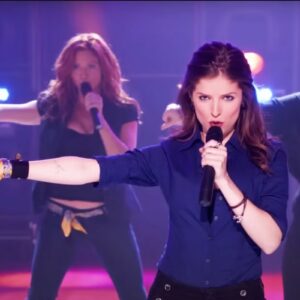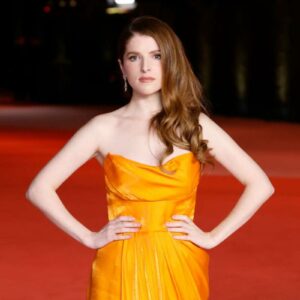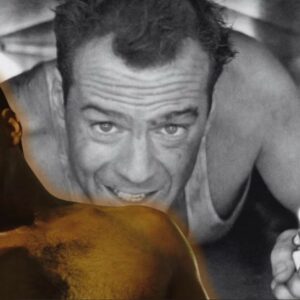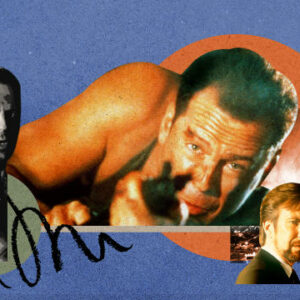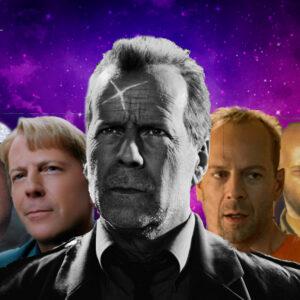Introduction
Daniel Radcliffe, renowned for his iconic portrayal of Harry Potter, has evolved significantly as an actor since his breakthrough role. His acting style has become a subject of interest among critics and fans alike, especially as he takes on diverse roles that challenge his earlier typecasting. In this article, we will compare Radcliffe’s acting style with that of other actors within his genre, examining how his approach stands out and contributes to his unique place in Hollywood.
The Evolution of Daniel Radcliffe
Daniel Radcliffe’s journey from a child star to a versatile actor is a fascinating one. Best known for his role as the titular wizard in the Harry Potter series, Radcliffe’s career began at a young age. While the series brought him fame, it also posed the challenge of breaking away from the image of Harry Potter. Radcliffe’s choice of roles post-Harry Potter reflects his desire to distance himself from typecasting and showcase his range as an actor.
1. The Early Years: Harry Potter and the Typecasting Dilemma
Radcliffe’s early work was dominated by his role in the Harry Potter franchise. His portrayal of Harry Potter was characterized by a blend of earnestness and vulnerability, qualities that endeared him to audiences worldwide. However, such a prominent role also led to concerns about typecasting. Critics and audiences alike wondered if Radcliffe would be able to transition into diverse roles beyond the wizarding world.
2. Post-Harry Potter: A Quest for Diversity
Radcliffe’s post-Harry Potter career has been marked by a conscious effort to diversify his roles. He took on various projects ranging from stage performances to indie films, each showcasing a different facet of his acting ability.
2.1. Stage Performances: A New Dimension
One of Radcliffe’s notable post-Harry Potter ventures was his foray into theater. His performances in productions like “Equus” and “How to Succeed in Business Without Really Trying” highlighted his willingness to tackle complex and often controversial roles. In “Equus,” Radcliffe portrayed Alan Strang, a troubled teenager with a fascination for horses. This role was a stark departure from his previous work and demonstrated his ability to handle intense and psychologically complex characters.
2.2. Indie Films: Embracing the Unconventional
Radcliffe’s work in indie films like “Swiss Army Man” and “The F Word” showcased his versatility and willingness to experiment with unconventional roles. In “Swiss Army Man,” Radcliffe played a flatulent corpse, a role that required a unique blend of physical comedy and emotional depth. This film further established Radcliffe’s ability to embrace unconventional characters and take risks in his performances.
Comparing Radcliffe’s Style with Hollywood’s Best
To understand Daniel Radcliffe’s acting style in context, we need to compare it with some of Hollywood’s most acclaimed actors. This comparison will focus on three key aspects: range, approach to character development, and stage versus screen performances.
1. Range: Radcliffe vs. Versatile Actors
1.1. Daniel Radcliffe
Radcliffe’s career is characterized by a deliberate attempt to showcase his range. From the innocent Harry Potter to the troubled Alan Strang and the eccentric Manny in “Swiss Army Man,” Radcliffe has demonstrated his ability to navigate a wide spectrum of characters. His choice of roles often reflects a desire to break free from his early typecasting and to explore different aspects of human experience.
1.2. Johnny Depp
Johnny Depp is another actor known for his range, often taking on eccentric and diverse roles. Depp’s portrayal of Captain Jack Sparrow in the “Pirates of the Caribbean” series is iconic, but he has also excelled in more dramatic roles, such as in “Sweeney Todd” and “Finding Neverland.” Like Radcliffe, Depp’s career is marked by a willingness to take risks and explore unconventional characters.
1.3. Cate Blanchett
Cate Blanchett’s career is a testament to her versatility. Known for her roles in both stage and screen, Blanchett has played a wide range of characters, from the ethereal Galadriel in “The Lord of the Rings” to the complex and flawed characters in films like “Blue Jasmine.” Blanchett’s ability to transition seamlessly between different genres and styles is comparable to Radcliffe’s efforts to diversify his own career.
2. Approach to Character Development: Radcliffe vs. Method Actors
2.1. Daniel Radcliffe
Radcliffe’s approach to character development involves a deep commitment to understanding his roles. His performances are often characterized by a meticulous attention to detail and a willingness to immerse himself in the characters he portrays. This can be seen in his preparation for stage roles, where he often undergoes extensive research and rehearsal to fully embody his characters.
2.2. Daniel Day-Lewis
Daniel Day-Lewis is renowned for his method acting approach, which involves a deep and immersive connection with his characters. His performances in films like “There Will Be Blood” and “Lincoln” are characterized by a profound psychological and emotional investment. Day-Lewis’s approach to character development contrasts with Radcliffe’s more varied methods, but both actors share a commitment to delivering compelling performances.
2.3. Meryl Streep
Meryl Streep is another actor known for her transformative performances. Her approach to character development involves a combination of research, physical transformation, and emotional depth. Streep’s ability to embody a wide range of characters, from historical figures to fictional personas, parallels Radcliffe’s efforts to showcase his versatility and depth.
3. Stage vs. Screen Performances: Radcliffe vs. Stage Actors
3.1. Daniel Radcliffe
Radcliffe’s work on stage has been a significant part of his career evolution. His performances in theater productions have allowed him to explore different aspects of his craft and showcase his versatility in a live setting. Stage performances require a different set of skills compared to screen acting, and Radcliffe’s success in both arenas highlights his adaptability.
3.2. Ian McKellen
Ian McKellen is a distinguished actor known for his work on both stage and screen. His performances in Shakespearean plays and classic theater productions are legendary, and he has also made a significant impact in film. McKellen’s ability to transition between stage and screen with ease is comparable to Radcliffe’s efforts to build a diverse and multifaceted career.
3.3. Judi Dench
Judi Dench’s career encompasses a wide range of stage and screen performances. Her work in theater, particularly with the Royal Shakespeare Company, has established her as one of the foremost stage actresses. Dench’s success in both arenas reflects a level of versatility and skill that resonates with Radcliffe’s approach to balancing stage and screen work.
Conclusion
Daniel Radcliffe’s acting style represents a blend of earnest commitment, versatility, and a willingness to take risks. His evolution from the iconic role of Harry Potter to a diverse range of characters showcases his dedication to his craft and his desire to challenge himself as an actor. Comparing Radcliffe’s style with Hollywood’s best reveals both similarities and differences in approach, highlighting his unique contributions to the world of acting.
Radcliffe’s career trajectory reflects a conscious effort to break free from typecasting and explore new dimensions of his talent. His ability to seamlessly transition between different genres, from stage to screen, and from dramatic to unconventional roles, underscores his status as a versatile and compelling actor. As he continues to evolve and take on new challenges, Daniel Radcliffe’s acting style will undoubtedly remain a subject of interest and admiration in the world of cinema.
